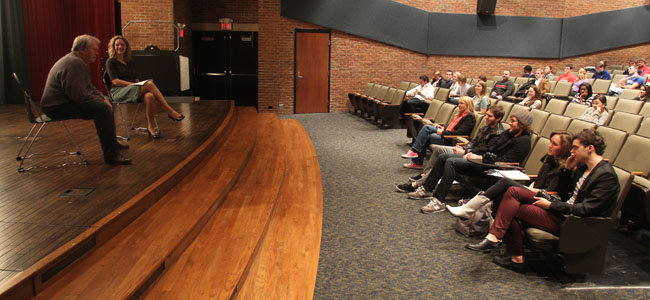
Music Courses for the General Student
These popular classes are currently available for credit and appropriate for non-music majors and for students with no background in music:
Music Composition and Theory
Musicology and Ethnomusicology
Other Courses
Writing Courses
Blair offers several courses that fulfill freshman writing requirements. These courses are listed in the Musicology and Ethnomusicology section of the Schedule of Classes, and course numbers are always MUSL 1111.